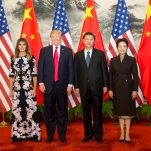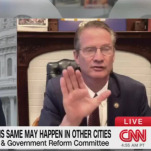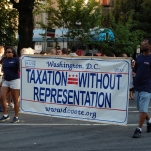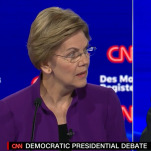China just poked a giant hole in Mitch McConnell’s pro-coal campaign
Last week, Sen. Mitch McConnell (R-Kentucky) published a letter to all 50 U.S. governors calling on them to reject an emissions-reduction plan put forward by the Obama administration.
As the New York Times’ Coral Davenport recently reported, it’s part of an unprecedented campaign on McConnell’s part to prevent further losses in the coal industry, something his home state, Kentucky, is heavily dependent on.
Among the arguments McConnell makes is that no matter what the U.S. does, it won’t amount to much as long as other countries refuse make similar moves.
Well, the largest emitter in the world now appears to be doing so.
Bloomberg reports that the city of Beijing is closing its last two major coal plants and will replace them with gas fired plants. Two others have already been swapped.
-

-

-

-

-

-

-

-

-

-

-

-

-

-

-

-

-

-

-

-

-

-

-

-

-

-

-

-

-

-

-

-

-

-

-

-

-

-

-

-

-

-

-

-

-

-

-

-

-

-

-

-

-

-

-

-

-

-

-

-

-

-

-

-

-

-

-

-

-

-

-

-

-

-

-

-

-

-

-

-

-

-

-

-

-

-

-

-

-

-

-

-

-

-

-

-

-

-

-

-

-

-

-

-

-

-

-

-











































































































